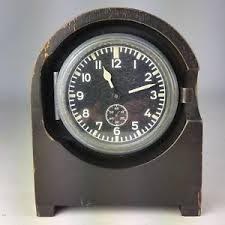Editor's Note: The following article was submitted to our sister site, MidlandToday, by Victoria Harbour resident Arlen Reinstein. It serves as a remembrance of the fateful day 75 years ago when the Germans were defeated in the Second World War.
When my father passed away in 2003 at the age of 90, on his nightstand there was this clock.
It was no ordinary timepiece.
While over the years numerous clock radios rested beside it to tell the time and to set his alarm in the morning for the present, this special clock held the time of the past.
This clock had been there everyday for 58 years. It ticked away as a constant reminder of a fateful day in his life.
On that day in 1945, 75 years ago, Russian troops celebrated the 4th May Day of the Great Patriotic War. Hitler was dead. Berlin and all of Nazi Germany lay in ruins and the war in Europe was one week away from an end, after six terrible years of death and suffering.
And on the road in front of an SS Barrack in Rovershagen, outside of Rostock on the Baltic Sea coast of northern Germany, a straggling, starving, harrassed, near-death column of Jewish slave labourers was liberated from the Nazi yoke by advancing Russian forces.
My father and his cousin were among them.
His life was saved, he was free, but his world didn't survive. It was consumed in the fury of the Shoah, the destruction of six million lives and, with it, the world of European Jewry.
An odyssey of death and despair had brought my father to that farflung place, from his home in Miechow, Poland, 40 kilometres outside of Krakow where he was born in 1913 and lived until the outbreak of war in 1939.
For six years, he endured the topography of Nazi labour camps and death factories, which carried away all the members of his family, save a brother, a cousin and a nephew and 90 per cent of Polish Jewry: almost three million victims.
From Plaszow Camp in Krakow, the infamous horror place of Schindler's List, through Gross Rosen, Bergen Belsen, Wolfsburg, Stettin and Barth he endured and survived through luck, determination and a stubborn will to live.
On that May 1 day, the Jewish survivors desperate for food salvaged foodstuffs out of bombed-out freight cars in the railyards opposite the barracks.
There was margarine, speck, marmalade, sugar. The supplies were clearly marked as military stores and the local Germans still clinging to their craven Nazi ideology had not deigned to loot them.
In a telling irony, it took the Halflings to distribute the Wehrmacht supplies to the starving populace.
Then in an undamaged railcar, once broken open, the Jewish ex-prisoners found a shipment of new military clocks in original boxes.
No one was interested in them at all. They had no value.
Except to my father.
He alone took one and it remained steadfast by his side, a witness to that bittersweet day of liberation and loss, of pain and hope, of despair and triumph.
It stood a testament to his journey through the valley of the shadow of death.
It counted his days as he rebuilt his life, started a family and moved on from his suffering to renewal and rebirth.
He couldn't forget that momentous day his personal nightmare ended.
And that clock recorded the time of memory. It ticked as it always had through the seven days of Shiva after his death and I let it wind down and never wound it again.
Its duty was done and now both it and its faithful owner are silent.
We owe so much to the 'Greatest Generation' who sacrificed so much to preserve our freedom.
We are all Canadians forever in their debt.



